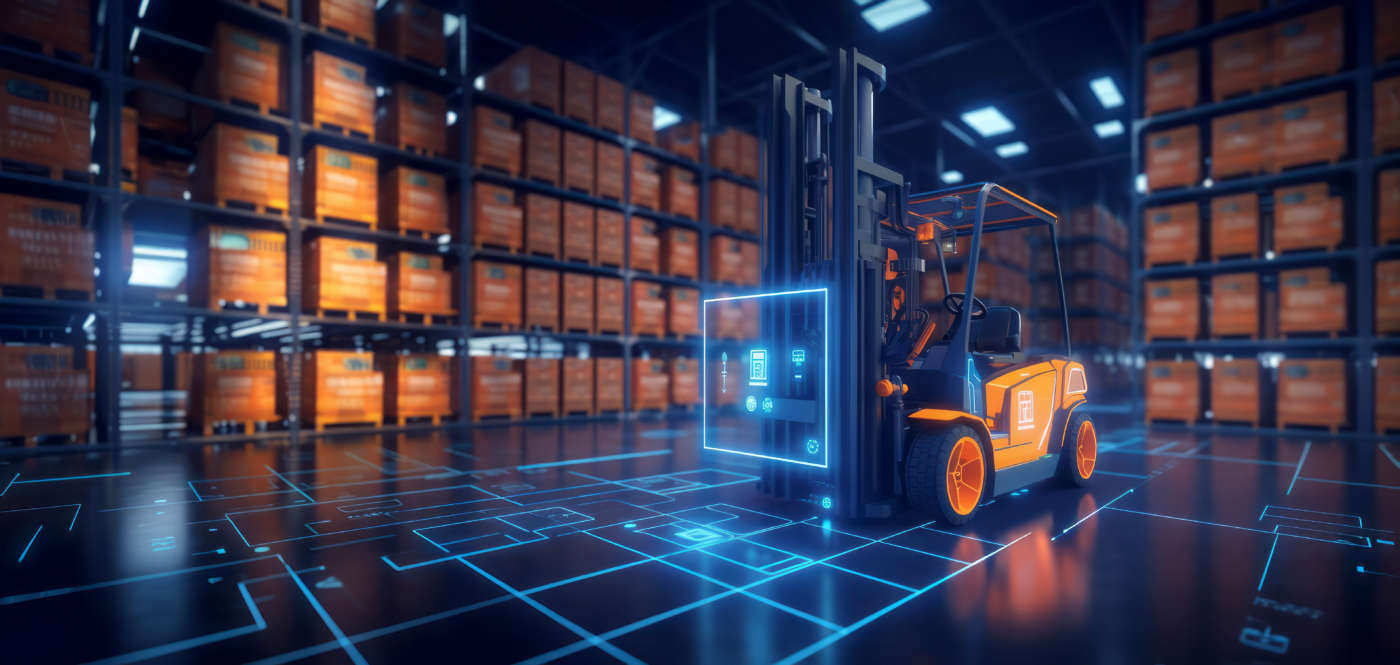The revolution of Artificial Intelligence in Logistics
La crescente popolarità di piattaforme intelligenti come ChatGpt, sviluppata da OpenAI, mette in evidenza l’enorme potenziale delle applicazioni dell’intelligenza artificiale (AI) nella nostra vita quotidiana e nel mondo del lavoro. Quando parliamo di logistica, l’AI non solo si sta dimostrando un potente assistente virtuale per l’interazione con gli utenti, ma sta anche abilitando una gestione più intelligente e efficiente dei processi logistici.
I Miti e le Realtà dell’AI nel Mondo del Lavoro
L’AI è spesso al centro di dibattiti accesi, soprattutto per quanto riguarda il suo potenziale impatto sull’occupazione. Se è vero che l’automazione potrebbe ridurre i posti di lavoro in alcune aree, è altrettanto vero che potrebbe generarne di nuovi, come quelli legati allo sviluppo di algoritmi. Inoltre, l’AI libererà le risorse umane per concentrarsi su attività più strategiche e complesse.
How AI Adds Value to Logistics
Nel settore logistico, l’intelligenza artificiale sta diventando un catalizzatore per trasformare i dati grezzi in informazioni preziose. Secondo un recente report di Ipsi e Conftrasporto, l’evoluzione verso la “Logistica 4.0” si basa principalmente sull’analisi dei dati. Gartner prevede che entro il 2023, l’AI sarà integrata nel 50% delle soluzioni tecnologiche nelle catene di approvvigionamento, generando un valore di 4.000 miliardi di dollari entro il 2025 secondo il World Economic Forum.
Current Uses of AI in Logistics Management
Le applicazioni dell’AI nel campo della logistica sono già molteplici e crescono ogni giorno. Ad esempio, l’AI sta giocando un ruolo fondamentale nella gestione dei flussi di merci. Il gruppo ITLM (Italmondo) utilizza sistemi basati sull’AI per prevedere i flussi di merci, ottimizzare le squadre di lavoro e migliorare la produttività, mentre riduce i costi.
AI in the Warehouse: Revolution or Evolution?
Il magazzino è uno dei luoghi dove l’AI potrebbe avere l’impatto più significativo. Con l’uso combinato di Internet delle Cose (IoT), robotica e RFID, un magazzino potrebbe gestire autonomamente tutte le fasi della logistica, dalla ricezione delle merci alla consegna finale, minimizzando gli errori umani.
Innovation in Packaging and Inventory Management
Non solo la gestione dei flussi, ma anche l’ottimizzazione degli imballaggi è un altro settore che beneficia dell’AI. L’uso di scanner laser e algoritmi avanzati consente di creare imballaggi su misura, riducendo i costi e gli sprechi materiali. Questo contribuisce anche a una gestione più efficiente delle scorte e a un miglioramento generale dell’efficienza.
L’AI e la Sostenibilità: Un Matrimonio Perfetto
L’intelligenza artificiale non solo può migliorare l’efficienza, ma può anche contribuire a una catena di approvvigionamento più sostenibile. Grazie agli algoritmi di apprendimento automatico, è possibile minimizzare gli sprechi di energia e di risorse, ridurre le emissioni di CO2 e promuovere pratiche più sostenibili lungo l’intera catena del valore.
Conclusione: L’AI è più di una Moda Passaggera nella Logistica
In sintesi, l’intelligenza artificiale sta rapidamente diventando un pilastro nel settore logistico, e i pionieri del settore stanno già cogliendo i frutti di questa rivoluzione tecnologica. In un mercato in continua evoluzione, rimanere competitivi significa sfruttare al massimo le opportunità offerte dall’AI e da altre tecnologie emergenti.
L’articolo che avete appena letto è stato ottimizzato per SEO e utilizza frasi chiave altamente ricercate per assicurare una visibilità ottimale. Grazie per la lettura!






Thanks to SendApp, I optimized the time dedicated to marketing.